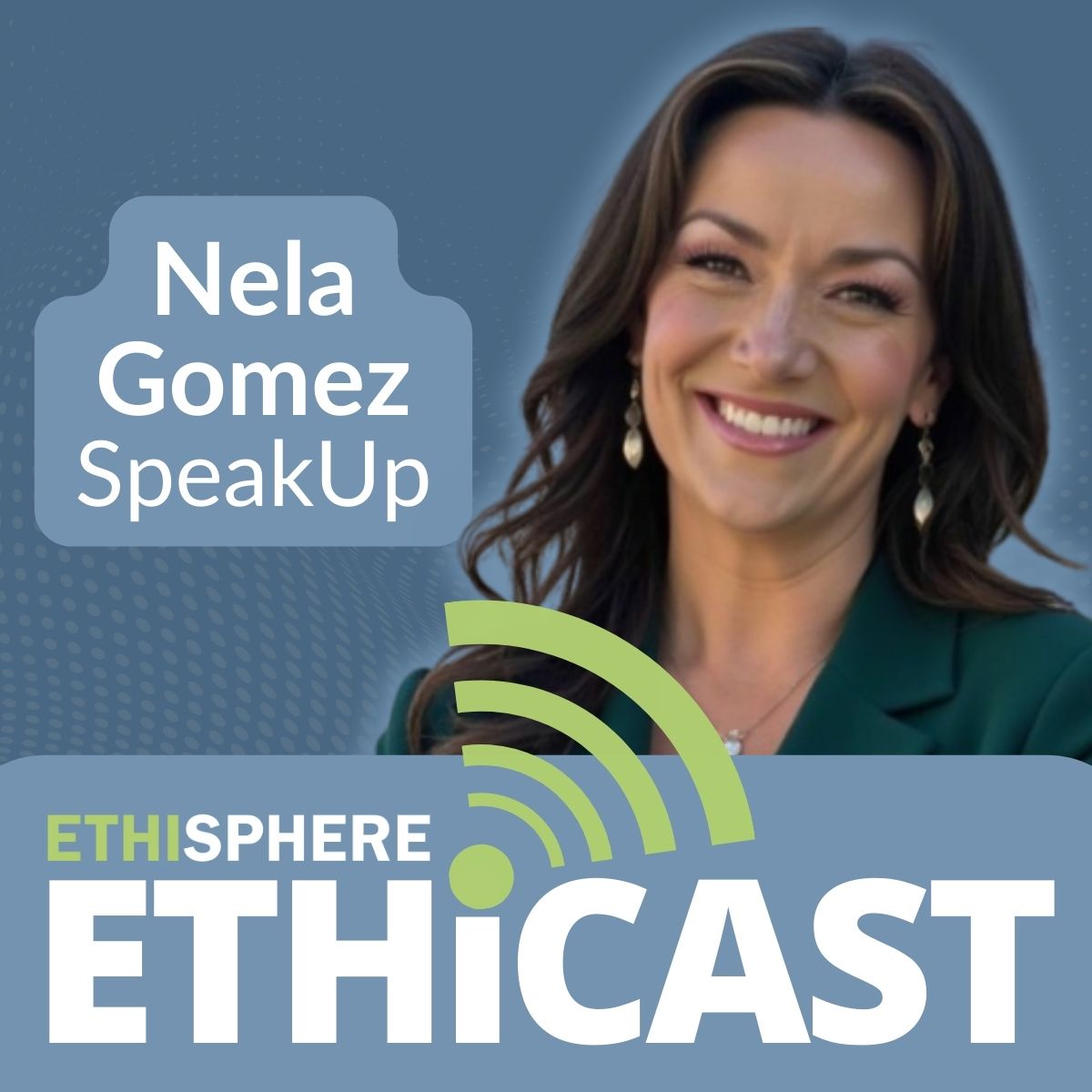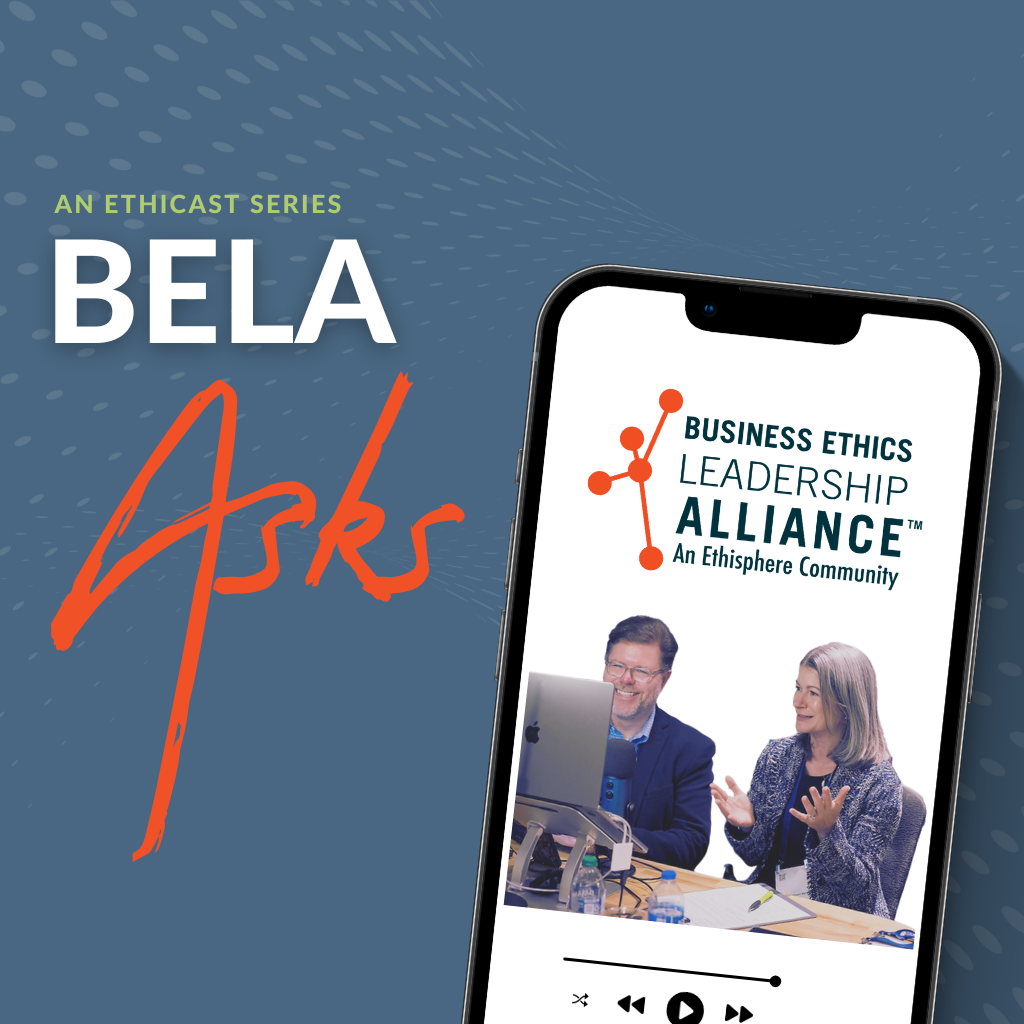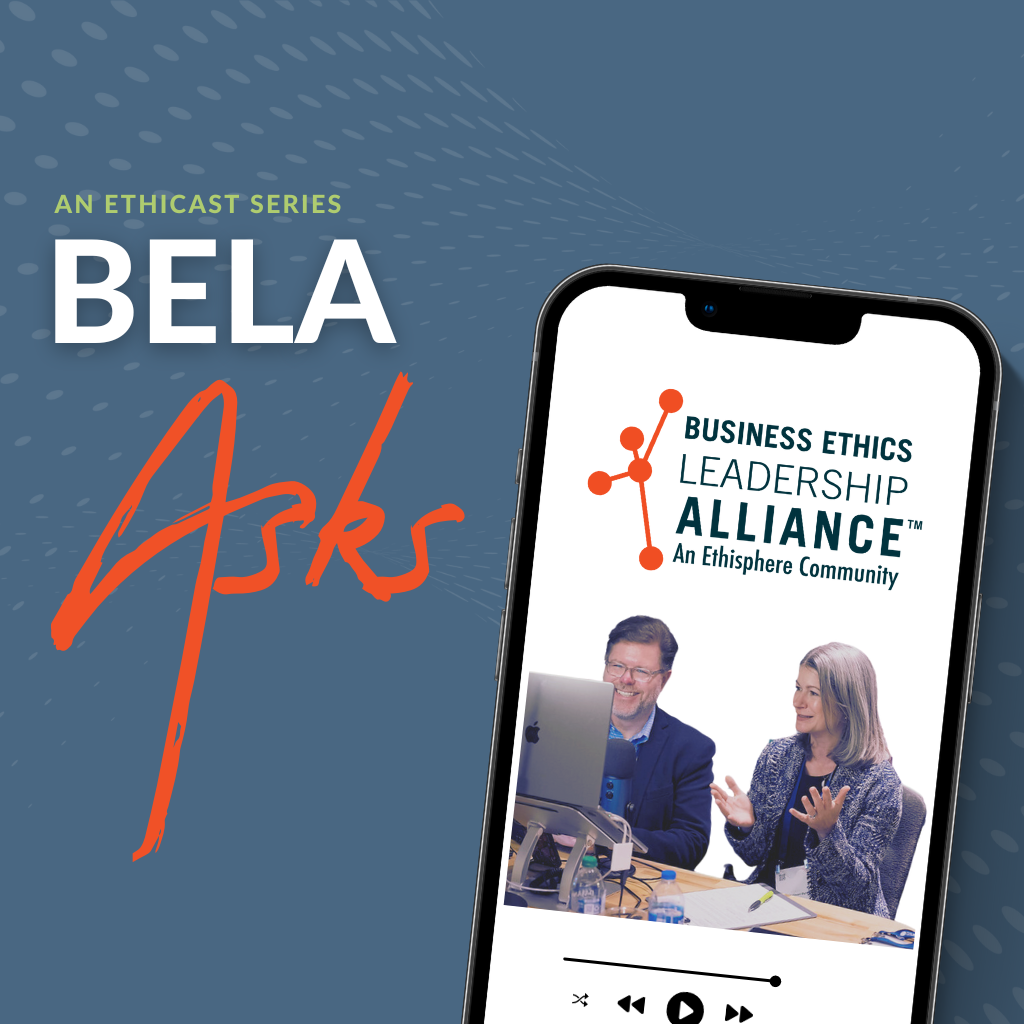Episode Transcript
[00:00:00] Speaker A: Hi, everyone. You've got questions and we've got answers. Welcome to another Bella Asks episode of the Ethicast.
The Business Ethics Leadership alliance, or bela, is a global ethics and compliance community that provides exclusive access to helpful data, benchmarking events and other resources to advance your ethics and compliance program. Now, one of those resources is Bella's concierge service, in which members can submit any question at all regarding ethics and compliance, and our internal experts will provide an answer, plus helpful resources with more information.
Now, while we invite everyone watching and listening to join bella, we know that there's no competition in compliance, so we're using this program to thematically respond to high level questions from the Bella community for the benefit of ENC teams everywhere.
And joining us once again to answer those questions is Bella chair Erica Salmon Byrne. Erica, as always, it's terrific to see you back on the program. Thank you so much for joining us.
[00:01:05] Speaker B: Oh, Bill, thank you so much for having me.
And to all of those Bella members out there that keep sending in questions, thank you to you.
[00:01:13] Speaker A: Well, our next question has been sent to us directly, so I'm very, very excited to get this on the show. It's a really good question regarding political action committees. And again, love I.
[00:01:23] Speaker B: Bill, as, as a, as a part of the ethic, the fact that this one was emailed directly to you and I as, as the Bella Asks team, it made my heart sing.
[00:01:34] Speaker A: It really did. It was like Christmas had come early. And it's a great question. It was a great question too.
[00:01:38] Speaker B: It's a great question too.
[00:01:39] Speaker A: Yeah, yeah, it reads. Our entire team are avid listeners of the podcast. Thank you. Many a discussion at one of our staff meetings has been sparked by something we heard on the Ethicast. Thank you for providing timely and informative content to the community. I would love Erica's thoughts on best practices with respect to employee political action committee compliance. And I have been asked to sit on the board of our PAC and have been working with outside counsel to understand all of the compliance issues. But I wonder if there are any resources out there that Erica could suggest. Erica, what do you have?
[00:02:09] Speaker B: Yeah, yeah, this. And it was really interesting though, when this one came in because I had been in a couple of political action committee related conversations over the course of the summer with different BELLA members who are also finding themselves in very similar situations. So, you know, know, we are in, we're, we're, we're here in the US And I will acknowledge for our international listeners, a political action committee is a kind of an odd us specific topic. So, you know, apologies in advance for that. We'll return you to your more applicable general programming next week.
But, you know, we are here in the US in the fall of 2025, you know, gearing up for a midterm election year next year. So I'm not surprised that there are a lot of companies that are thinking about PAC activity and PAC regulation right now. And it is one of those interesting places where I think the relationship between compliance and government affairs is not always in all companies, as strong as it potentially could be. So if you're listening to this conversation and you're thinking of yourself as a compliance professional, huh?
I've never looked into what's going on with our pack. Don't be alarmed. You're probably. You're not alone from talking to other Bella members. I know there are a lot of organizations where, you know, the PAC is very much something that Government affairs and Government affairs lawyers tend to tend to deal with. But in this particular instance, and it's becoming increasingly common, companies that have significant, significant exposure to legislative activity are starting to think about what it looks like to start up a pack, to restart a pack, to refresh a pack, to start engaging in pack behavior in some meaningful capacity.
So, in terms of resources, first off, outside counsel, you know, this is a very specialized area, and you definitely want to make sure that you are consulting with people who spend all of their time thinking about what is and is not allowed under this evolving area. And that's particularly the case because it is evolving. So if you think about the interface between some of this activity, you know, lobbying writ large, the political action committee activity, and then some of the registration laws that are coming into effect in some of the states around foreign representation. So, you know, doing business on behalf of sovereign wealth funds or at the direction of someone who might be affiliated with the government. So there's a whole overlapping Venn diagram of things you have to think about here. And so consulting with outside counsel is obviously step number one, make sure you've got the right people, you know, on call from that perspective. But then, you know, really looking around and asking yourself, okay, who's in my industry?
What are they doing? You know, this is definitely an area where crowdsourcing can be extraordinarily helpful. And so in the case when this particular Bella member sent in this wonderful question, the first thing I did is I connected her with another Bella member. And I did that because I knew that they had just been thinking about these same questions and really trying to think through, you know, why do we have the pac? What are we trying to accomplish as a political action committee? What are going to be the rules of engagement with our employees? What are going to be the rules of engagement with the candidates we're donating to the causes, the campaigns, etc. And then the other thing I would recommend is looking at the ways in which you are currently overseeing as a compliance team, your nonprofit creation.
Because we also know that one of the ways that some companies have gotten into trouble in the past from a legislative and a lobbying and a political donations perspective, is through the interactions with 501C4s. So how do you know who you are sending your money to?
How do you know where it's going from there?
So all of those reputational risk kind of risk management pieces, it's probably the reason the compliance officer has been asked to join the PAC board in the first place. And that's one of the, you know, sort of the first things that I would do if I were in, in her shoes.
[00:06:09] Speaker A: Now, Erica, are you okay if I hit you with the follow up question?
[00:06:13] Speaker B: Phil, longtime listeners of Bella asks. No, I never mind a follow up question. No, please. This is a really meaty area. So yes, I would be surprised if you didn't have a follow up question.
[00:06:24] Speaker A: Well, so this is actually an appendix to the question that was asked. Right. And you kind of half answered already. But the question is if is it even a good idea for the SECO to sit on the pack board? Now you, you would address this somewhat, but I think what intrigued me about this would be the notion of could there be a downside to the SECO sitting on the packboard? So could you explore that a little bit?
[00:06:43] Speaker B: Yeah. So I think the.
In, in general, I think that having someone with the perspective that a compliance officer is going to have sitting on the packboard is a good idea because you know, that is that person's point of view is going to be one that is fairly broad from a risk perspective. They're going to understand some of the other things that are happening across the business that might be implicated by some of what the PAC is talking about doing. So let's say, hypothetically speaking, the PAC is thinking about donating to a ballot initiative that would benefit the company because they're trying to engage in some M and A activity. And the compliance officer knows about the M and A activity because her team is involved in, you know, the diligence activity on M and A. And so she would be in a position to spot this ballot initiative potential conflict issue before Any kind of, you know, funds flowed to this project. So in general, I think because of the extent to which the compliance officer is going to have that perspective, it is a good idea for the compliance officer to be on the board of the political action committee. The potential downside is going to come with the employee side of the house. So if what you would want to keep an eye out for would be any indications that employees are uncomfortable raising concerns about pack activity because of who is sitting on the pack board. So, you know, in some cases we see companies being very public and very out there with the members of their leadership team that are on the pack board. And in other cases, we see that being less so.
One of the ways we've seen companies deal with this is by being very clear about what the pack is for. Right. Very clear about the fact that it's optional, very clear about kind of how the money is going to be utilized, the kinds of causes it's going to be donated to, the decision making process the company is going to go through when they're deciding where to send PAC money.
Those are going to be sort of those risk factors that you're going to want to keep an eye on from the employee side of the house. So, you know, definitely not doing anything, saying anything, giving the perception that if you are uncomfortable with the pack behavior, you have to keep that to yourself and, you know, and have any kind of an impact on the speak up culture.
[00:09:02] Speaker A: Well, Erica, as always, thank you so much for weighing in on these questions in general, but especially this question because this is a great one directly from a listener and so excited we could address it in this episode. So once again, thank you so much for your thought leadership on this.
[00:09:15] Speaker B: Oh, absolutely, Bill. My pleasure. And you know, obviously to all of you out there listening, thank you. Bill and I really take seriously questions from the community and you never know the next question that you send in that could wind up on an episode. So please, please, please keep the questions coming. It's one of my favorite things that I get to do to come back and answer them with my friend Bill.
[00:09:32] Speaker A: To learn more about Bella, Visit@the sphere.com Bella to request guest access to the member resource hub and to speak with the Bella engagement director. And if you have a question that you would like answered on this program, contact the Bella Concierge service or myself or Erica and and we'll get to work on it for you. This has been another Bella Asks episode of the Ethicast. Thank you so much for joining us. We really hope that you've enjoyed the show. If you haven't already, please like and subscribe on YouTube, Apple Podcasts and Spotify. And if you wouldn't mind, please be sure to tell a colleague or two about us as well. It really helps to expand the reach of the program.
That's all for now, but until next time, remember, strong ethics is good business.
[00:10:17] Speaker B: It.


